
Wines and Tinned Fish perfect match by Francisco Figueiredo – Adega de Colares
Very balanced in flavors, highlighting the “star” ingredients: fish or squid. I really liked the use (enough) of the salt. I think that many canning companies exaggerate this aspect. In Miss Can everything is “just right”.
I leave here my appreciation and clues for the choice of wines that I found most suitable.
It is always a challenge to connect wines with dishes with strong flavors, especially spicy and vinegar. The different types of fats used can also be challenging, in this case olive oil.
If you had to choose only one type of wine that could combine with all the preserves, you would undoubtedly choose a raw sparkling wine (less than 12 grams of sugar / liter) or, in the case of spicy preserves or pickles, a dry sparkling wine or even medium-dry (from 12 to 32 grams of sugar / liter).
As we say in the world of wine, sparkling wines are the most versatile wines we have. We can accompany an entire meal with this type of wine, from starters to sweet desserts.
In an attempt to not just follow the “easy way” of sparkling wines, I chose some wines, from different regions and categories, which I thought could be harmonized with the Miss Can tinned fish.
When choosing, I always thought of the need to have good levels of acidity, to deal with fat and, eventually, some residual sugar, to deal with pickle vinegar and spicy. I also thought of wines that are a little more structured or with vegetable notes (white with wood or more vegetable varieties or even reds) to deal with the acidity of tomatoes and tinned cod.
I avoided the use of red grape varieties with a lot of tannin. Tannins are not friends with fish protein.
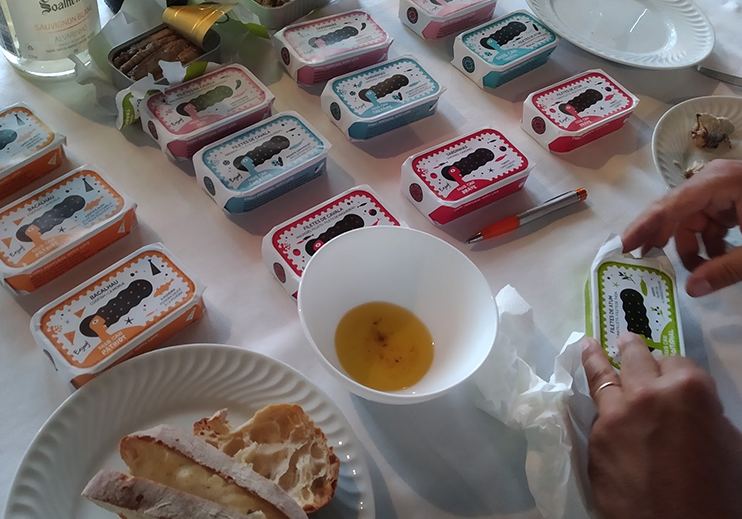
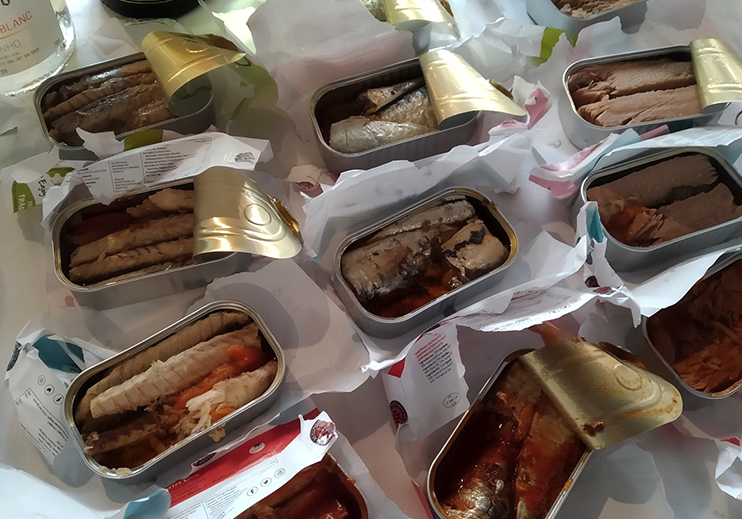
“I avoided the use of red grape varieties with a lot of tannin. Tannins are not friends with fish protein.”
I leave you my choice for each tinned fish and a more general observation, which can guide anyone looking for a connection to wine. I also leave you information about the two wines that, in my opinion, connected better with each tinned fish:
Smoked Trout
- Wine 1 – Pinot Noir Infinitude
- Wine 2 – Touriga Nacional Escada
Notes:
- Excellent flavor and consistency. Intense notes of smoke, almost reminiscent of smoked bacon or sharks / truffles. Rich and intense flavor to ask for a dry wine, with less acidity and notes of forest. Suggestion of a Pinot Noir or a Touriga Nacional without wood and from a cooler region (Lisbon or Dão)
Squid
- Wine 1 – Riesling
- Wine 2 – Soalheiro Sauvignon / Alvarinho
Notes:
- The intense flavor of the filling and sauce ingredients, rich and seasoned with more herbal notes, calls for a fresh wine, full of acidity and with more intense aromas. Try with a Riesling or Sauvignon Blanc from Atlantic regions. Alternatively, a raw sparkling wine from Bairrada, whose bubbles will clean the palate and help with the next mouthful.
Cod with grain
- Wine 1 – Arinto Baias e Enseadas
- Wine 2 – Arenae Malvasia de Colares
Notes:
- The smooth texture of the cod and the oil itself calls for a more structured white wine, rich in acidity, with more contained aromatic intensity, which does not overlap with the mild flavor of the preserved cod. I suggest a white aged in wood, for example an Arinto from the DOC Bucelas region or a white wine from the Lisbon region.
Cod in Olive Oil and Garlic
- Wine 1 – Soalheiro Alvarinho / Sauvignin
- Wine 2 – Pinot Noir e T. Nacional
Notes:
- An intense and rich preserve where the soft texture of the cod stands out associated with the intense flavor of garlic and laurel. Strong aromas that require a wine also with more marked aromas and with sufficient acidity to balance the oil fat. Two of many hypotheses: an acidic white with aromatic varieties and more vegetables, for example an Alvarinho / Loureiro green wine or, alternatively, a red wine with some body and preferably with light wood (an Alentejo red or a Castelão de Lisboa or Península de Setubal).
Cod “Poveira”
- Wine 1 – Malvasia DOC Colares
- Wine 2 – Espumante Sidónio de Sousa
Notes:
- Sauce rich in olive oil, garlic, onion and paprika requires a wine capable of combating rich seasonings and spices. I suggest a dry, salty and iodized white like a Malvasia DOC Colares or a sparkling Alvarinho, fresh and fruity.
Mackerel in Olive Oil
- Wine 1 – Dócil Niepoort
- Wine 2 – Alvarinho
Notes:
- Delicate and very mild flavor of the fish calls for a wine with less intense aromatic notes, but with enough acidity to sustain the oil. It is suggested a green white with good acidity and slight residual sugar or an Encruzado do Dão.
Mackerel in Spicy
- Wine 1 – Dócil Niepoort
- Wine 2 – Espumante Meio-Seco
Notes:
- The spicy taste calls for some sugar and acidity. It is therefore suggested a white wine with pronounced acidity, for example a Verde or an Arinto or, alternatively, a medium-dry sparkling wine from Távora-Varosa.
Mackerel in Pickles
- Wine 1 -Espumante
Notes:
- Vinegar is usually one of the most difficult ingredients to harmonize with wine. Here, the delicacy of mackerel and its fat helps to soften the acidity of pickles. I suggest a raw sparkling wine … acidity with acidity if you fight.
Mackerel in Tomato
- Wine 1 – Espumante Rosado
- Wine 2 – Espumante meio-seco
Notes:
- The tomato sauce with a slight acidity, rich in herbal aromas and with a touch of salt harmonizes well with a dry, quiet pink wine or in the sparkling version. A white, with little extraction will also make an excellent connection.
Sardines in Olive Oil
- Wine 1 – Casta Loureiro / Espadeiro
- Wine 2 – Vinhão
Notes:
- To harmonize with all the richness contained in a sardine, from the intense flavor to its content of healthy fatty acids, we need a wine that is sharp in freshness and acidity. A green wine from Casta Loureiro or Espadeiro or a red green wine from Vinhão is suggested.
Sardines in Spicy
- Wine 1 – Madeira
Notes:
- This vibrant tinned sardine with chilli combines perfectly with a dry wine, rich in acidity and aromas of dried fruits. I suggest a Madeira Sercial or, across borders, a Sherry Olorojo, both capable of reaching the high notes transmitted by the hot chili.
Sardines in Pickles
- Wine 1 – Espumante Meio-Seco
- Wine 2 – Dócil
Notes:
- Vinegar is usually one of the most difficult ingredients to harmonize with wine. Here, the intensity of the sardines and their good fat help to soften the acidity of the pickles. I suggest a raw sparkling wine … acidity with acidity you fight.
Sardines in Tomato
- Wine 1 – Madeira
Notes:
- Vinegar is usually one of the most difficult ingredients to harmonize with wine. Here, the intensity of the sardines and their good fat help to soften the acidity of the pickles. I suggest a raw sparkling wine … acidity with acidity you fight.
Tuna in Olive Oil
- Wine 1 – Pinot Noir
- Wine 2 – Rosé Seco
Notes:
- The delicacy of this tuna makes it possible to break the rule of whites with fish. Try tasting with light, low-extraction reds served at 16ºC (Pinot Noir).
Tuna in Spice Olive Oil
- Wine 1 – Moscatel Galego
- Wine 2 – Riesling
Notes:
- To balance the intense and pungent flavors of the chilli, nothing beats an aromatic white with a touch of sweetness. It is suggested a Moscatel Galego from Douro or a fresh Riesling from a more coastal region.
Tuna with Pickles
- Wine 1 – Semi-dry sparkling wine
Notes:
- Vinegar is usually one of the most difficult ingredients to harmonize with wine. Here, the softness of the tuna helps to soften the acidity of the pickles. I suggest a semi-dry sparkling wine or a white from the Azores, rich in minerality and salinity.
Tuna with Tomato
- Wine 1 – Madeira
Notes:
- Sauce thick and rich in aromas and condiment. Perfect connection for a wine with more structure, acidity and fruity notes. Tomatoes have always done well with Madeira wine. A 5 or 10 year old Verdelho Reserva is recommended. For something different, try a Vermouth.
Bio
Francisco Figueiredo
Was born in Lisbon, graduated in Agronomic Engineering, from the Instituto Superior de Agronomia (U.T.L.) and completed his training in Enology, as a Post-Graduate, at the School of Biotechnology of the Catholic University, in Porto. In 1999, he started working in an emblematic house in the Lisbon region, the Adega Regional de Colares and has been, since 2005, its production director. Since 2000, he has been working as a consulting winemaker in the regions of Colares, Torres Vedras and Alenquer.

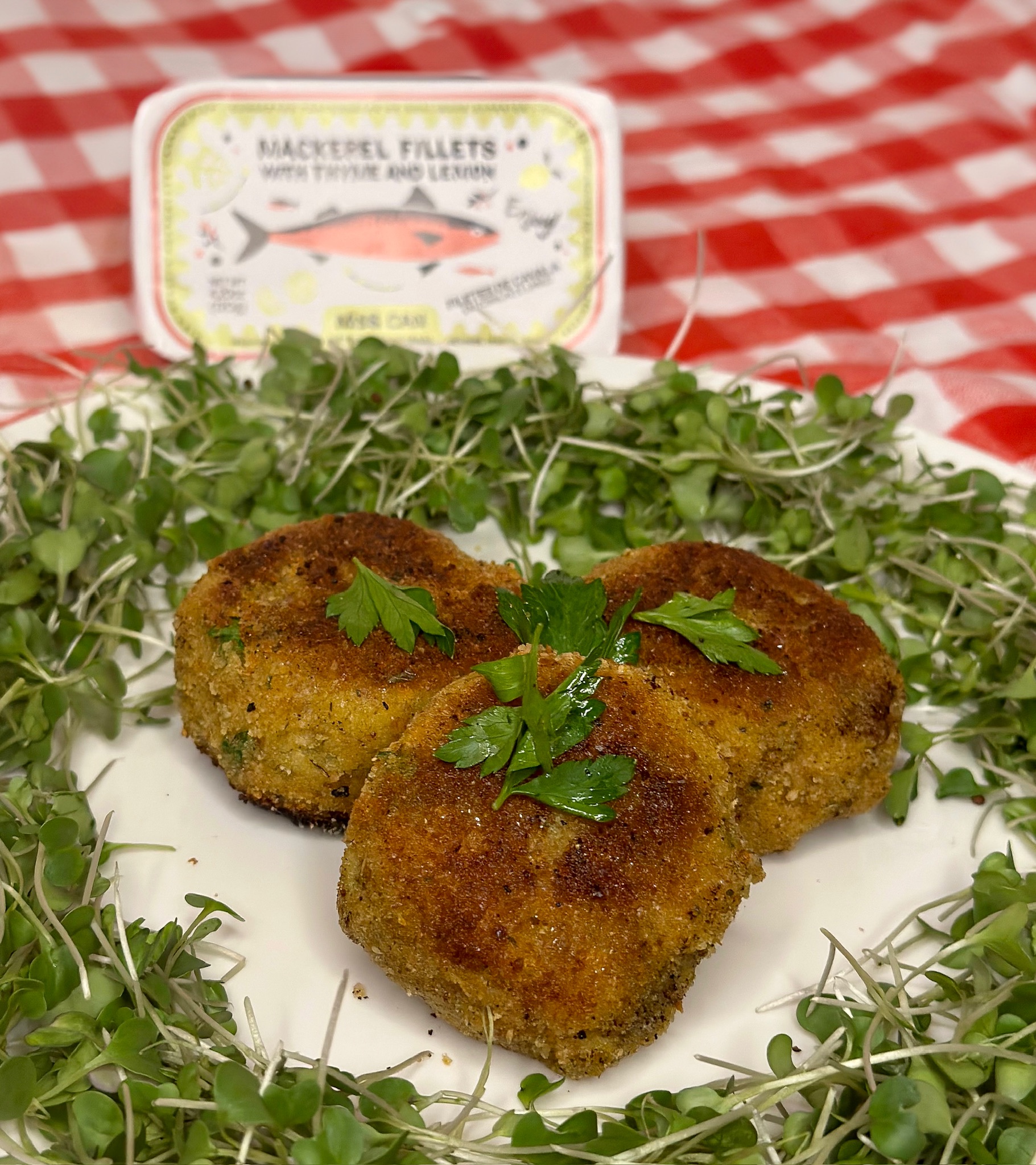
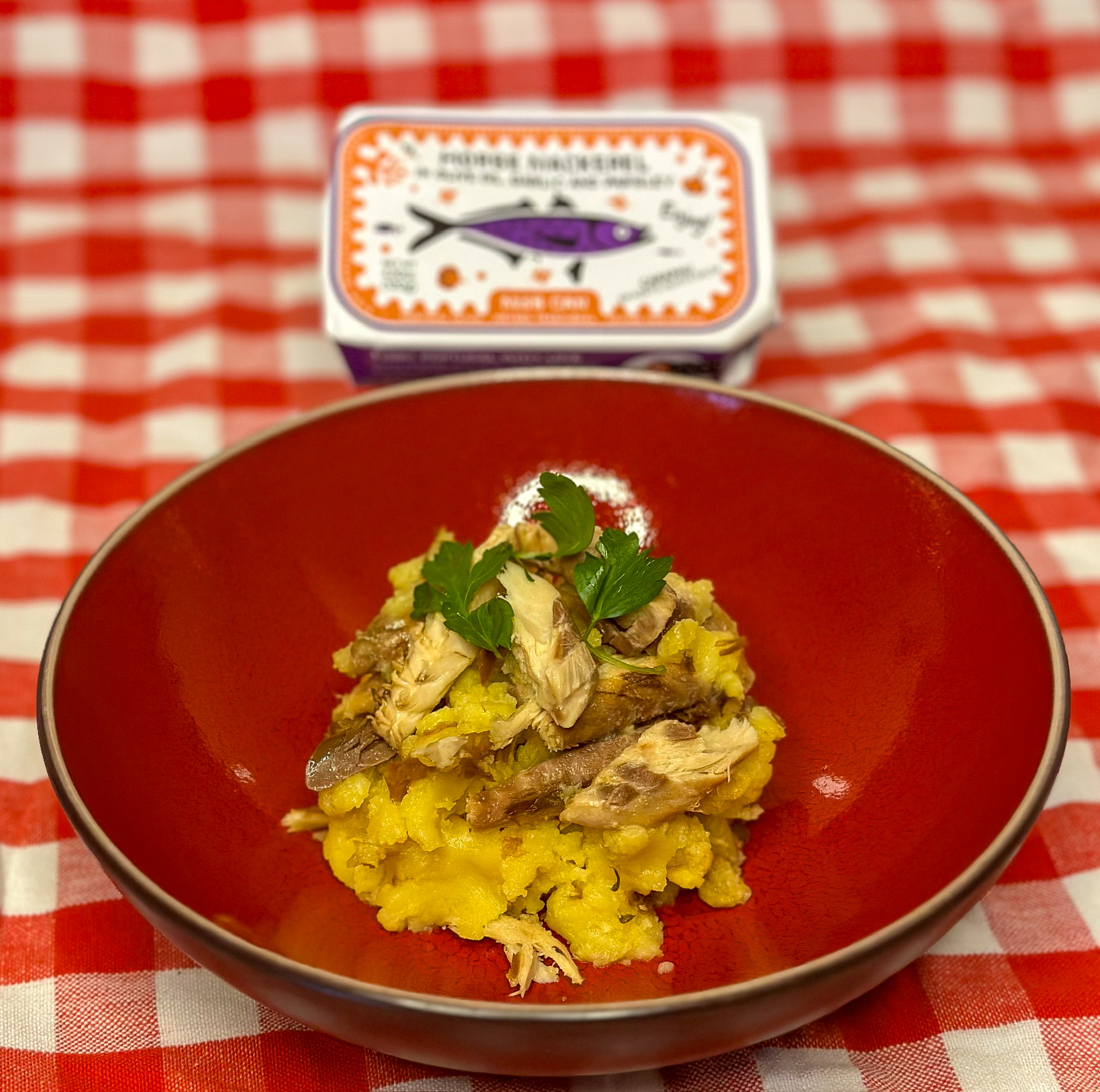
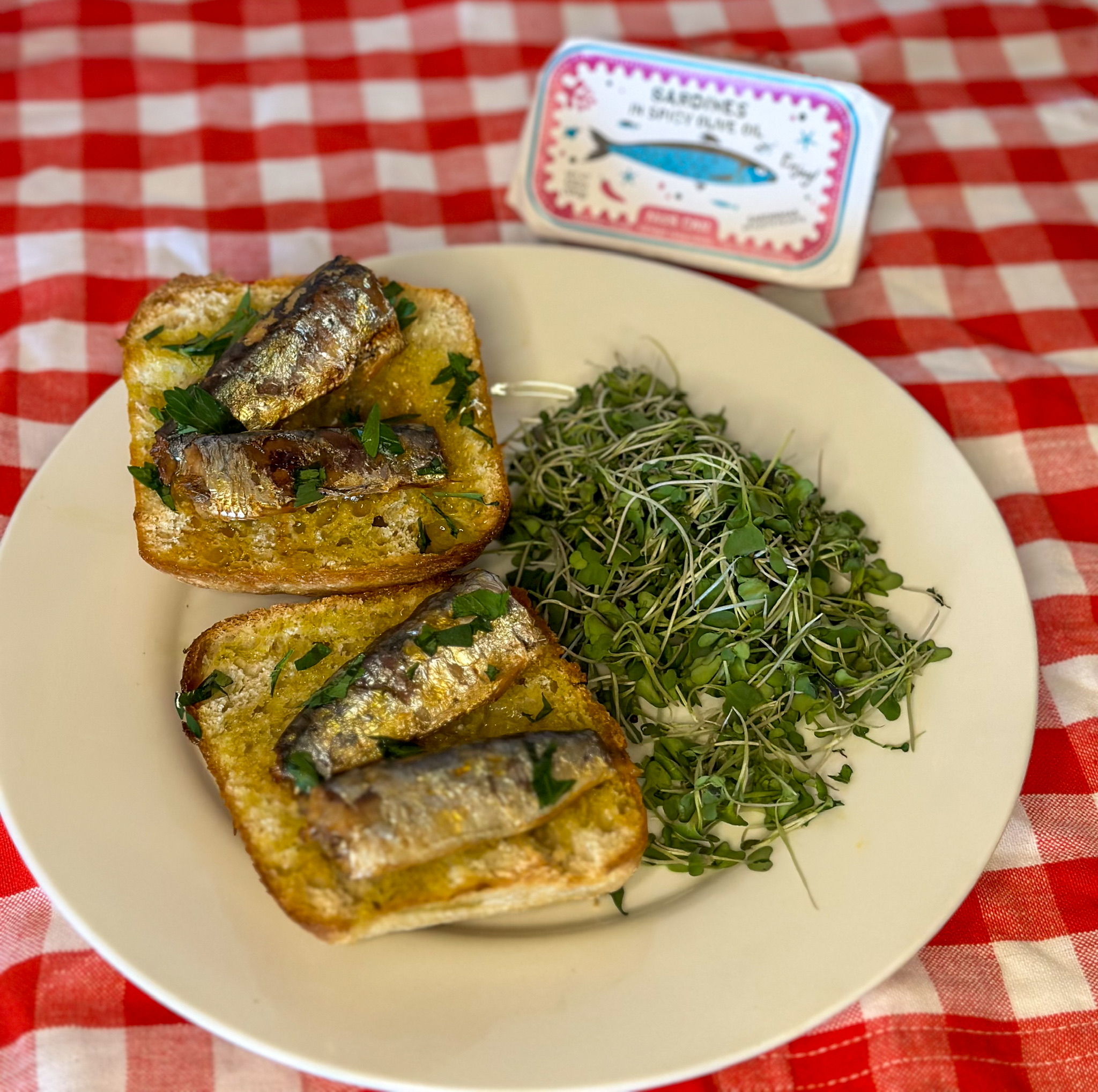
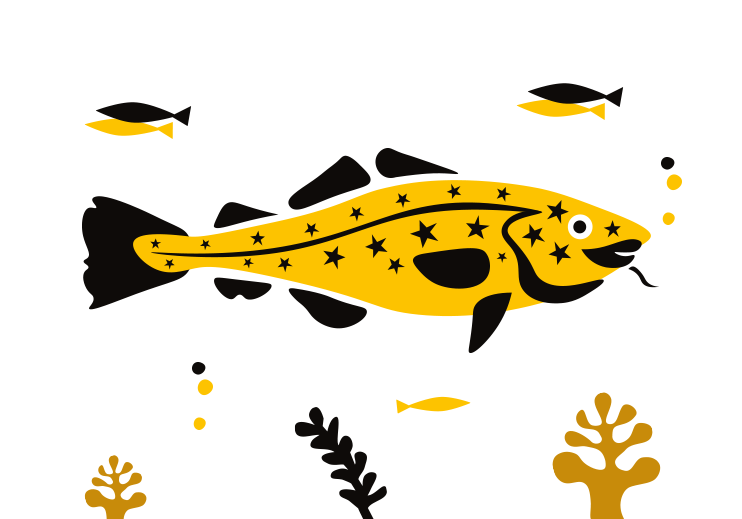
mybus1892 years ago
When visiting Portugal in 2019 I got to try you sardines and thoroughly enjoyed them and brought some home for myself and family. So excited you are delivering globally! The one thing I did not try were your gold infused sardines! I brought home two cans and gave them away. Was wondering if you will offer them again? Would love to try!! Thanks